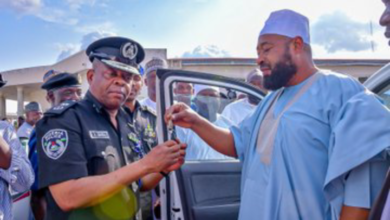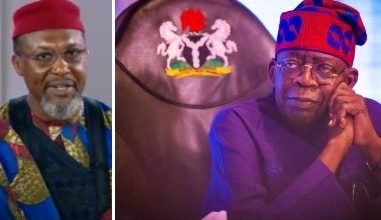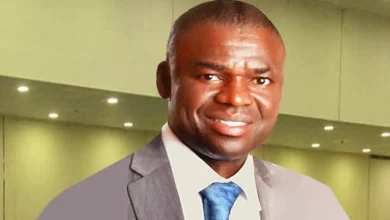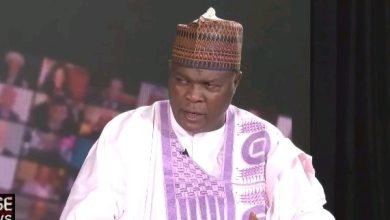Peter Obi Vs Tinubu, Atiku:Ambassador Olufunso Breaks Down EU Mission Report On Nigeria's 2023 Polls
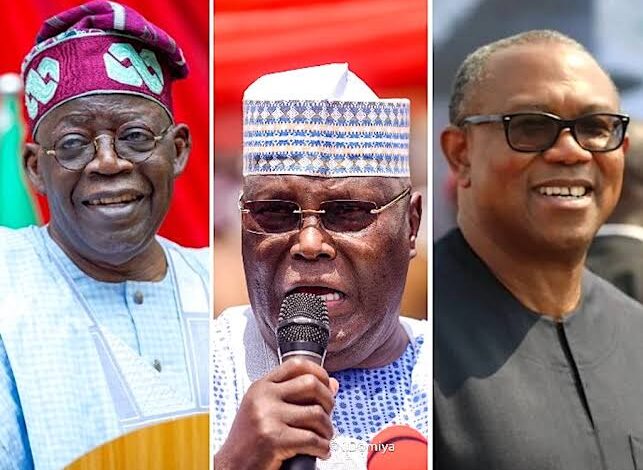
Former Ambassador Olufunso Olumoko recently gave an interview in which he offered a thorough analysis of the mission report the European Union (EU) conducted regarding Nigeria’s 2023 presidential elections. The main contenders were highlighted in the report: Mr Peter Obi of the Labour Party, Mr Bola Tinubu of the All Progressives Congress (APC), and former vice president Atiku Abubakar. Olumoko provided his opinions on the biases, benefits, and drawbacks of the report. He was a career ambassador to Thailand with accreditation to Myanmar.
Vanguard claims that the Independent National Electoral Commission (INEC) declared Tinubu the victor of the presidential election that was held on February 25. However, the decision was subject to legal challenges. During this time, the EU mission released its report, which sparked strong reactions from several Nigerians, including the Presidency.
Olumoko considers that the EU report was unbalanced and overly focused on the negatives, such as insecurity, violence, technological problems, and vote-buying. Thousands of polling stations, logistical challenges, and difficult terrain were all faced by INEC as it conducted elections, he claimed, and the report failed to recognise their tremendous efforts. Olumoko agreed that there were anomalies, but thought the report overstated how big they were.
He emphasised that while international electoral monitors, such as those from the EU, US, Commonwealth, African Union (AU), ECOWAS, and local organisations, serve a valuable purpose in strengthening Nigeria’s electoral process, the ultimate authority rests with the nation and its electoral laws.
To strengthen African democracies, Olumoko emphasised the value of taking international observers’ reports into account. He advised against outright ignoring such reports as they frequently include insightful observations and suggestions for enhancing the electoral process. He emphasised the importance of maintaining the integrity of voting materials, starting voting on time, having effective operational frameworks for INEC, taking affirmative action to increase women’s participation, providing accessibility for voters with disabilities, and punishing electoral offenders quickly.
Olumoko refuted the assertion made by the EU mission that flaws in the legal system and electoral management undermined confidence in INEC and prevented inclusive elections. He conceded that there had been some mistakes, but insisted that they had not seriously damaged INEC’s reputation. Despite the general atmosphere of unease and threats from political parties, the elections were successfully held, yielding a mix of victories for the ruling and opposition parties, including the opposition LP winning in the state where the current president is from. The EU report was criticised by Olumoko for being biased.
Olumoko disagreed with the assertion made by the EU mission that a lack of transparency and operational errors jeopardised voter rights and undermined confidence in the electoral system. Numerous EU complaints, in his opinion, were arbitrary and prejudicial. He emphasised the fact that no electoral system is flawless and that this included the ones in the nations the monitors were representing. Each has flaws and difficulties.
Olumoko advocated for INEC to keep improving, that mistakes from the past be learned from, and that voter education be bolstered to improve elections in Nigeria. To prevent wasted and invalid votes, he emphasised the value of educating voters about democratic participation, voting practises, and handling ballots.
What’s your take on this?
Source: Vanguard paper
Graciouswriter (
)

